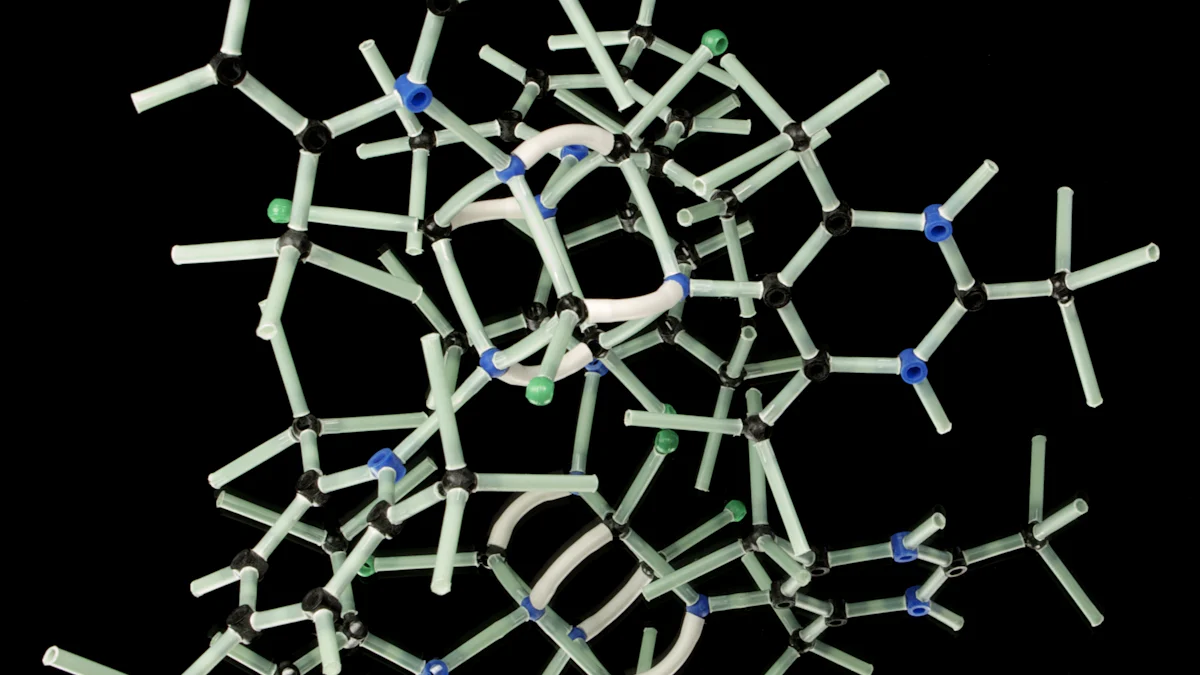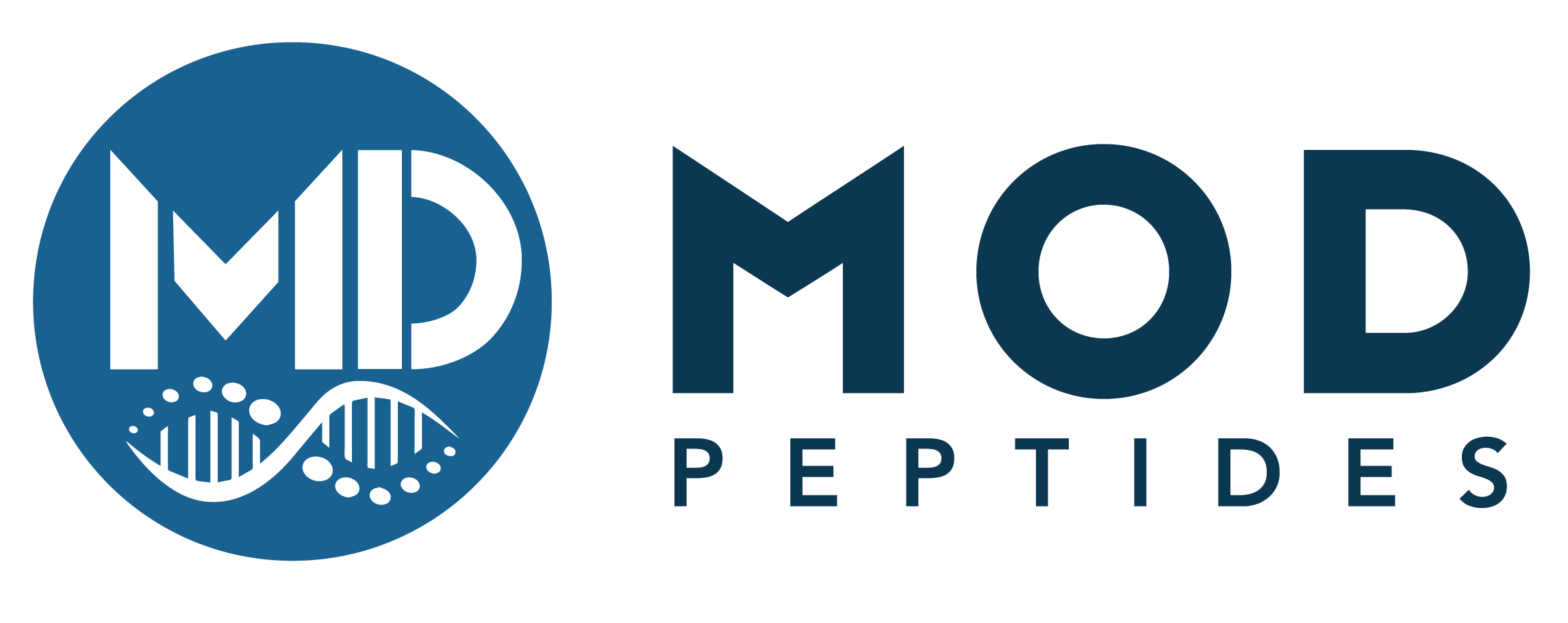What is the relationship between Tirzepatide and B12?

Tirzepatide, a peptide-injectable medication, has gained attention for its effectiveness in managing type 2 diabetes and promoting significant weight loss. Vitamin B12 plays a crucial role in the body by aiding energy production and supporting overall metabolic functions. The growing interest in understanding the interaction between Tirzepatide B12 and glycine highlights the potential benefits of combining these substances. Compounding pharmacy practices often blend Tirzepatide with B12 to enhance treatment outcomes and mitigate compound side effects. However, emerging evidence suggests that Tirzepatide therapy may predispose individuals to Vitamin B12 deficiency due to its effects on gastric functions. For those interested, these compounded medications can be found at specialized stores.
Interaction Between Tirzepatide and B12
Clinical Evidence
Studies on Tirzepatide and B12 Levels
Researchers have explored the effects of tirzepatide on weight loss and diabetes management. Tirzepatide Weight Loss Potential highlights its role as a GLP-1 receptor agonist, which helps regulate appetite and calorie intake. However, studies specifically focusing on tirzepatide b12 levels remain limited. No direct interactions between tirzepatide and Vitamin B12 have been documented, though this does not rule out potential interactions. Healthcare providers should always be consulted for personalized advice.
Expert Opinions
Experts in endocrinology and pharmacology have weighed in on the potential impacts of combining tirzepatide with Vitamin B12. Many believe that adding B12 to tirzepatide therapy can enhance energy levels and mitigate fatigue, a common side effect in the early stages of tirzepatide treatment. Some healthcare professionals also suggest that monitoring B12 levels is crucial for patients undergoing tirzepatide therapy to prevent deficiencies.
Potential Mechanisms
How Tirzepatide May Affect B12 Absorption
Tirzepatide's impact on gastric functions may influence B12 absorption. The medication slows down gastric emptying, which could potentially affect how the body absorbs nutrients, including Vitamin B12. This slower digestion process might lead to reduced B12 uptake, necessitating supplementation for some patients.Tirzepatide storage can also affect absorption effect.
Biological Pathways Involved
Tirzepatide activates GLP-1 and GIP receptors, which play roles in regulating blood sugar and appetite. These hormones also influence gastric motility and secretion. By slowing gastric emptying, tirzepatide may indirectly affect the absorption of nutrients like Vitamin B12. Understanding these biological pathways helps in optimizing treatment plans for patients using tirzepatide b12 compounds.
Real-world Examples
Patient Case Studies
Several case studies have documented the experiences of patients using tirzepatide b12 compounds. One patient reported significant weight loss and improved energy levels after starting the combined therapy. Another patient noted better blood sugar control and reduced cravings. These case studies highlight the potential benefits of combining tirzepatide with Vitamin B12.
Testimonials
Testimonials from individuals using tirzepatide b12 compounds often emphasize increased energy and enhanced weight loss. One user mentioned feeling more energetic and less fatigued within weeks of starting the therapy. Another testimonial highlighted the ease of managing diabetes symptoms while experiencing fewer side effects. These real-world examples provide valuable insights into the practical benefits of this combined treatment approach.
Understanding Tirzepatide

What is Tirzepatide?
Mechanism of Action
Tirzepatide functions as a dual-action medication. It activates both GLP-1 (glucagon-like peptide-1) and GIP (glucose-dependent insulinotropic polypeptide) receptors. These hormones play crucial roles in regulating hunger and insulin secretion. By stimulating these receptors, Tirzepatide helps reduce appetite and slow the movement of food from the stomach into the small intestine. This process makes individuals feel full more quickly and for a longer period. The medication is administered once weekly through a subcutaneous injection.
Clinical Uses
Tirzepatide has been approved primarily for managing type 2 diabetes. It improves blood sugar control by enhancing insulin secretion and reducing glucose production in the liver. Recently, healthcare providers have started using Tirzepatide for weight management. Patients with obesity have shown significant weight loss while on this medication. The dual benefits of blood sugar regulation and weight reduction make Tirzepatide a versatile treatment option.
Benefits of Tirzepatide
Weight Management
Tirzepatide offers substantial benefits for weight management. The medication decreases appetite, leading to reduced caloric intake. By slowing gastric emptying, it prolongs the feeling of fullness. This dual mechanism helps individuals lose weight and maintain their weight loss over time. Studies have shown that patients can experience significant weight reduction, making Tirzepatide an effective tool for combating obesity.
Diabetes Control
Tirzepatide excels in managing type 2 diabetes. By activating GLP-1 and GIP receptors, it enhances insulin secretion and reduces glucose production. This dual action helps lower blood sugar levels and improves overall glycemic control. Patients often see improvements in their HbA1c levels, a key marker for long-term blood sugar management. The medication also helps reduce the risk of diabetes-related complications, making it a valuable addition to diabetes treatment plans.
Side Effects and Considerations
Common Side Effects
Patients using Tirzepatide may experience some common side effects. These include nausea, diarrhea, and bloating. Other reported side effects are constipation, dehydration, and vomiting. Most of these side effects are mild and tend to improve over time. Adjusting dietary habits can help alleviate these symptoms. Healthcare providers should monitor patients closely to manage any adverse effects effectively.
Long-term Considerations
Long-term use of Tirzepatide requires careful monitoring. The medication's impact on gastric functions may affect nutrient absorption, including Vitamin B12. Regular blood tests can help track B12 levels and other essential nutrients. Patients should consult healthcare professionals for personalized advice on supplementation if needed. Understanding the long-term implications ensures that patients receive comprehensive care while benefiting from Tirzepatide therapy.
The Role of Vitamin B12 in the Body

Importance of Vitamin B12
Functions in the Body
Vitamin B12 plays a crucial role in maintaining overall health. This vitamin supports the development, myelination, and function of the central nervous system. It also aids in the formation of healthy red blood cells and DNA synthesis. Vitamin B12 functions as a cofactor for enzymes like methionine synthase and L-methylmalonyl-CoA mutase. These enzymes are essential for various metabolic processes.
Vitamin B12 is vital for nerve cell health. This vitamin helps produce DNA and RNA, the body's genetic material. It works closely with vitamin B9 to create red blood cells and enhance iron function in the body. Without sufficient Vitamin B12, the body cannot perform these critical functions effectively.
Sources of B12
Vitamin B12 is naturally present in several foods. Animal-based products like fish, meat, poultry, eggs, and dairy contain high levels of this vitamin. Fortified cereals and nutritional yeast also provide good sources of Vitamin B12. For those who follow a vegetarian or vegan diet, fortified foods and supplements can help meet daily requirements.
B12 Deficiency
Symptoms
A deficiency in Vitamin B12 can lead to various health issues. Common symptoms include fatigue, weakness, and anemia. Individuals may also experience neurological problems such as numbness, tingling in the hands and feet, and difficulty walking. Cognitive impairments like memory loss and confusion can occur in severe cases.
Risk Factors
Certain groups are at higher risk for Vitamin B12 deficiency. Older adults often have reduced stomach acid, which affects B12 absorption. People with gastrointestinal disorders like Crohn's disease or celiac disease may also struggle with absorption. Vegans and vegetarians are at risk due to the lack of animal-based foods in their diet. Long-term use of certain medications, such as proton pump inhibitors and metformin, can also contribute to a deficiency.
Managing B12 Levels While on Tirzepatide
Monitoring B12 Levels
Recommended Tests
Healthcare providers recommend specific tests to monitor Vitamin B12 levels. Blood tests measure the amount of Vitamin B12 in the bloodstream. These tests help identify deficiencies early. Another test, the methylmalonic acid (MMA) test, can detect functional B12 deficiency. Elevated MMA levels indicate a lack of active Vitamin B12 in the body. Homocysteine levels also provide insight into B12 status. High homocysteine levels often correlate with low B12 levels.
Frequency of Monitoring
Regular monitoring ensures optimal B12 levels during tirzepatide therapy. Healthcare providers suggest checking B12 levels every three to six months. More frequent testing may be necessary for individuals at higher risk of deficiency. Regular monitoring helps adjust supplementation strategies as needed. Consistent checks ensure that patients maintain adequate B12 levels for overall health.
Supplementation Strategies
Dietary Changes
Dietary changes can help maintain adequate B12 levels. Including animal-based foods like fish, meat, poultry, eggs, and dairy provides natural sources of Vitamin B12. Fortified cereals and nutritional yeast offer additional options. Vegetarians and vegans should focus on fortified foods to meet daily requirements. A balanced diet supports overall health and helps prevent B12 deficiency.
B12 Supplements
B12 supplements provide an effective way to maintain adequate levels. Oral supplements come in various forms, including tablets, capsules, and lozenges. Sublingual tablets dissolve under the tongue for quicker absorption. Injections offer another option for those with severe deficiencies or absorption issues. Healthcare providers can recommend the best form and dosage based on individual needs.
Role of Healthcare Professionals
Importance of Personalized Treatment
Personalized treatment plans ensure optimal outcomes for patients using tirzepatide. Healthcare professionals assess individual needs and risks. Customized plans address specific concerns, such as potential B12 deficiency. Personalized treatment enhances the effectiveness of tirzepatide therapy. Tailored approaches improve overall patient care and health outcomes.
Consulting with Specialists
Consulting with specialists provides additional support for managing B12 levels. Endocrinologists and nutritionists offer expert advice on maintaining adequate B12 levels. These specialists can recommend appropriate tests and supplementation strategies. Regular consultations help monitor progress and adjust treatment plans as needed. Specialist input ensures comprehensive care for patients using tirzepatide.
The relationship between Tirzepatide and Vitamin B12 offers promising benefits for weight management and diabetes control. Monitoring B12 levels remains crucial for individuals using Tirzepatide to prevent deficiencies. Consulting healthcare professionals ensures personalized advice and optimal treatment outcomes. Consider specific pharmacies or healthcare providers for comprehensive care and effective monitoring.

 USD
USD




